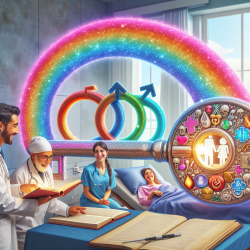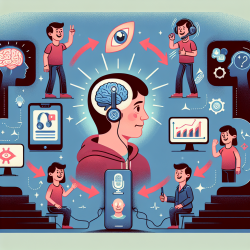Introduction
As a Special Education Director, I understand the importance of creating a safe and healthy environment for our students, especially those with special needs. The recent research article, "Cold Climate Impact on Air-Pollution-Related Health Outcomes: A Scoping Review," provides valuable insights into how cold climates can exacerbate air pollution and its related health impacts. This blog post will explore the findings of this research and discuss how practitioners can enhance their skills by implementing these insights or conducting further research.
Understanding the Impact of Cold Climates on Air Pollution
The scoping review highlights that in cold climates, vehicles tend to idle more and have higher cold-start emissions, leading to increased greenhouse gases and other pollutants. This is particularly concerning for the 400 million people living in cities with sub-zero temperatures. The review identified that cold temperatures can significantly increase harmful vehicular emissions, yet there is a lack of comprehensive research on this topic.
Key Findings
- Only a few vehicle technologies have been tested for emissions below -7°C (20°F).
- Extreme cold and warm temperatures can aggravate mortality and morbidity associated with ozone, particles, and carbon monoxide.
- Most studies adjust for temperature, removing the possible direct effect of temperature on pollution and health.
- There is a significant gap in understanding the relationship between cold temperatures, traffic-related pollution, and health outcomes.
Opportunities for Practitioners
For practitioners working in cold climate regions, this research underscores the importance of considering environmental factors when assessing health outcomes. Here are some ways practitioners can enhance their skills and contribute to this field:
- Stay Informed: Regularly attend conferences, webinars, and read publications related to environmental health and air pollution.
- Advocate for Research: Encourage and support research initiatives that focus on the impact of cold climates on air pollution and health outcomes.
- Collaborate: Work with interdisciplinary teams to develop comprehensive studies that explore the interaction between cold temperatures, pollution, and health.
- Implement Interventions: Develop and implement interventions that mitigate the impact of traffic-related air pollution in cold climates, such as promoting the use of cleaner vehicle technologies.
Encouraging Further Research
The review calls for targeted research to guide vehicle regulations, assess extreme weather-related risks, and inform public health interventions. Practitioners can play a crucial role in this by identifying research gaps and collaborating with researchers to fill these gaps. By doing so, they can contribute to developing evidence-based strategies that protect vulnerable populations, such as children and individuals with pre-existing health conditions.
Conclusion
Understanding the impact of cold climates on air pollution and health outcomes is crucial for developing effective public health strategies. Practitioners have the opportunity to enhance their skills and make a meaningful impact by staying informed, advocating for research, collaborating with interdisciplinary teams, and implementing targeted interventions.
To read the original research paper, please follow this link: Cold Climate Impact on Air-Pollution-Related Health Outcomes: A Scoping Review.










